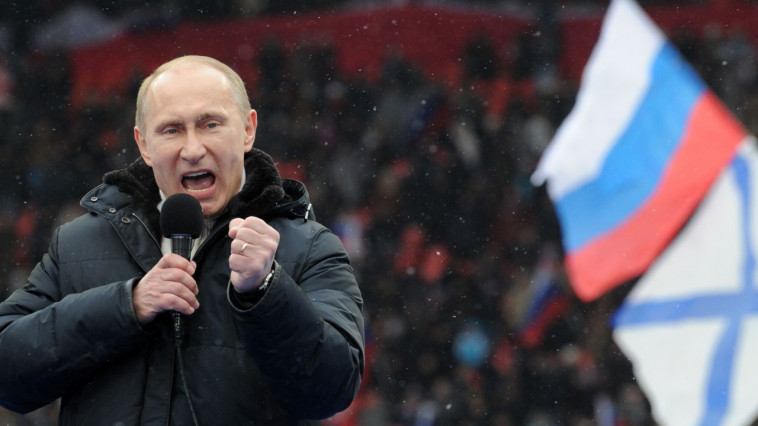Iulian CHIFU // Russia and the illusion of superpower in fighting with the West by any means

The President Vladimir Putin signed the new concept of foreign policy of Russia. It is the fourth such document issued by Russia, and from the general tests, both from 2000 (before September 11), from 2008 (one month before the Russian-Georgian war) as well as the one from 2013 (before the annexation of Crimea and the military aggression in eastern Ukraine), have been shown obsolete in less than a year. The same premises is kept in the current document, considering that the document implied Hillary Clinton's victory in the US presidential election, but the victorious one was Donald Trump.
There is a sensible level of latest correction of the current Foreign Policy Concept, most likely due to its phases of approval to the Russian Foreign Ministry, the National Security Council and the President Putin. This correction relevant stresses a caution in relation to the new US President, which we find also in the speech of Vladimir Putin about the state of the nation and, most likely, we will find it in his annual press conference from December 21 to 22. This is about the temptation of tinting and reducing criticism in the hope for a different approach by Donald Trump of the bilateral relations.
This prudent approach has failed, however, to blur the blunt general features of Russia's relationship with the West, already different compared to its position from 2013. If Russia would integrate back in the time into the global community and would consider itself a part of Europe, this time the two components have disappeared and remained only the feature confrontational of the relationship: the US is a threat to Russia's national security - for the first time since the cold war, in line with the military doctrine; through the attempts to limit Russia, the EU and the US undermines the regional and global stability; and "the geopolitical expansion" of the EU is criticized amply.
Instead, the concept of foreign policy comes to speak about the restoration of Russia as a superpower, "strengthening Russia's position as one of the most influential centers of power in the modern world" who wants "to strengthen the factor of force at the international relations level", ie the use of military force. The illusion of superpower and the Russian exceptionalism promoted by the Concept of foreign policy translates, in fact, the faith to Russia that the use of military force can make to come out of isolation and to oblige the whole world to accept its claims, thus managing to impose their policies, vision and interests on the the global arena. In addition, the Kremlin is trying to present its military intervention in Syria, to suggest that the world can not solve this crisis without Russia.
The concept of foreign policy of this year, through its unshaded political side after the election of Trump as US president, but as a result of technical assessments, is, in fact, a true doctrine of the Cold War, placing again Russia and the West in opposition, and even on the position of the absolute enemy. Even the recourse to multi-polarization is nothing more than a coverage of desire to achieve the position of bipolarity with the US and the resumption of business by negotiating with the US, a strong negotiation, in agreement by constant threats of recourse to nuclear weapons.
The Kremlin blames, constantly, the West and its alleged expansion, pleading for spheres of influence and limited sovereignty by its own interests in the post-Soviet space, otherwise announcing the imminence of the war. But it does not think at any point that the solution in terms of current principles of respect for sovereignty, territorial integrity and independence of the States and that its problems can be solved by substantially reducing its level of ambition and the cessation of military expansion, inclusively of alternative forms of recovering by force of the USSR. Otherwise, the collapse, of economic reasons, of the State is imminent.
The document reaffirms the doctrinal provisions from 2013, from the same concept, relative to the good soft power of Russia against the evil of the West, however, moving the discussion to the informational war level. One of the most important goals of Russian foreign policy is, "strengthening the position of Russian media in the global information space". In Europe, the policy of transatlantic division and the internal division is present, even in the nomination of the partner states: Italy, France, Germany, Spain, not the UK, the Netherlands or Finland, the last one being deleted as well from the discussion on the relationship with the Nordic countries. In rest are kept the false propagandist references to respect the international obligations in good faith, or those contradictory ones: the opposition against the aggressive nationalism but supporting as an absolute priority the Russian World concept.














